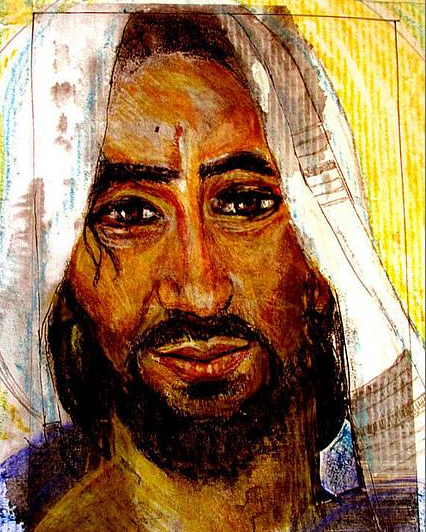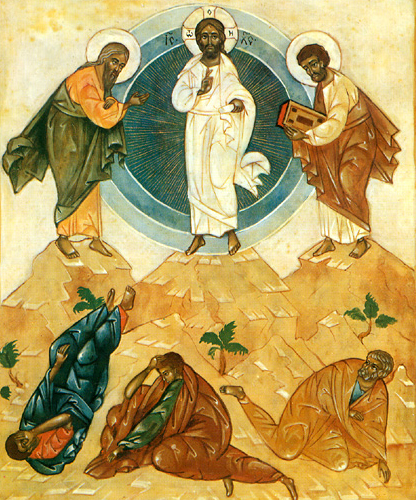Christian Art | Prayer With Jesus | Psalms | God’s Covenant With David | King David As A Boy | Audio KJV | Love Revealed By Jesus Christ | King James Audio Bible
Psalm 89 | King James Audio Bible
YouTube: Psalm 89 | KJV | King James Version | Audio Bible | Word Aloud
Psalm 89 is a majestic hymn, a symphony of faithfulness, and a reflection on the enduring promises of God. Attributed to Ethan the Ezrahite, this psalm is a profound meditation on the covenant established with David, a covenant marked by divine pledges of steadfast love, eternal kingship, and an unbreakable lineage. The psalmist weaves history, theology, and the psalmist’s own individual spiritual contemplation.
The psalm opens with a declaration of the psalmist’s intent to sing of the mercies of the Lord forever. This commitment sets the stage for an exploration of the enduring faithfulness of God. The psalmist affirms God’s covenant, which transcends temporal constraints and has its foundation in the heavens. It is a covenant that, according to the psalmist, will see mercy built up forever, and faithfulness established in the very fabric of the celestial realm.
Central to the psalm is the covenant made with David, the anointed servant of God. This covenant unfolds in a series of divine promises that resonate with regal grandeur. The psalmist envisions an unbroken lineage, a perpetual establishment of David’s seed, and a throne that will endure through all generations.
The psalmist’s celebration acknowledges God’s unmatched greatness. Who in the heavens can be compared to the Lord? Among the sons of the mighty, who can be likened unto the Lord? These rhetorical questions underscore the incomparable nature of God’s divine attributes. The psalmist reveres God in the assembly of the saints, expressing reverence from all who surround the Almighty.
The divine rulership over the raging sea and the ability to still its waves become metaphors for God’s supremacy over chaotic forces. The mention of Rahab’s defeat and the scattering of enemies with a strong arm reinforces the psalmist’s image of God as the unrivaled, triumphant sovereign.
The psalmist asserts God’s foundational role in the creation of heaven and earth. The north and the south, represented by Tabor and Hermon, are brought under God’s creative dominion. Imagery of a mighty arm and a high right hand symbolizes God’s strength and exalted position.
Justice and judgment become the pillars of God’s throne, with mercy and truth preceding His divine countenance. The psalmist extols the blessedness of those who know the joyful sound, those who walk in the light of God’s countenance. In God’s name, they rejoice all the day, finding exaltation in His righteousness.
A shift occurs as the psalmist contemplates potential consequences of Israel’s transgressions. If David’s descendants forsake God’s law and break His statutes, there will be divine correction. Yet, the psalmist underscores God’s unwavering lovingkindness and mercy, assuring that even in correction, faithfulness will not utterly be taken away.
The psalmist reflects on the sworn covenant, invoking God’s holiness and vowing not to lie to David. The seed of David is destined to endure forever, with a throne established like the moon and as a faithful witness in heaven.
However, the tone dramatically shifts in the latter part of the psalm, introducing a stark contrast to the earlier exaltation. The psalmist addresses God’s apparent rejection and wrath towards the anointed one. The covenant is seemingly voided, the crown profaned, and the protective hedges broken down. The once-mighty Davidic king becomes a reproach, spoiled by those passing by, a victim of scorn from his neighbors.
In a turn, the enemies of the anointed one rejoice, and the once-formidable sword is turned, unable to stand in battle. The glory of the throne ceases, and the once-extended days of youth are shortened, covered in shame.
The psalmist, grappling with this despair, cries out to the Lord, questioning perpetual nature of divine wrath. The brevity of human life and apparent futility of creation evoke a plea for God’s remembrance and the restoration of former lovingkindnesses pledged to David in truth.
The reproach borne by the psalmist and the anointed one becomes a central motif, accentuating the weight of divine rejection. The psalmist appeals to God to remember the scorn carried in his bosom and the insults directed at the footsteps of the anointed.
Yet, in the midst of this lamentation and desperate plea, the psalm concludes with a powerful benediction. Blessed be the Lord forevermore. Amen and Amen. The psalmist, despite profound agony expressed, affirms God’s eternal blessedness.

Psalm 89 | King James Audio Bible KJV | Love Revealed By Jesus Christ
I will sing of the mercies of the Lord forever: with my mouth will I make known thy faithfulness to all generations.
For I have said, Mercy shall be built up forever: thy faithfulness shalt thou establish in the very heavens.
I have made a covenant with my chosen, I have sworn unto David my servant,
Thy seed will I establish forever, and build up thy throne to all generations.
Selah.
And the heavens shall praise thy wonders, O Lord: thy faithfulness also in the congregation of the saints.
For who in the heaven can be compared unto the Lord? who among the sons of the mighty can be likened unto the Lord?
God is greatly to be feared in the assembly of the saints, and to be had in reverence of all them that are about him.
O Lord God of hosts, who is a strong Lord like unto thee? or to thy faithfulness round about thee?
Thou rulest the raging of the sea: when the waves thereof arise, thou stillest them.
Thou hast broken Rahab in pieces, as one that is slain; thou hast scattered thine enemies with thy strong arm.
The heavens are thine, the earth also is thine: as for the world and the fulness thereof, thou hast founded them.
The north and the south thou hast created them: Tabor and Hermon shall rejoice in thy name.
Thou hast a mighty arm: strong is thy hand, and high is thy right hand.
Justice and judgment are the habitation of thy throne: mercy and truth shall go before thy face.
Blessed is the people that know the joyful sound: they shall walk, O Lord, in the light of thy countenance.
In thy name shall they rejoice all the day: and in thy righteousness shall they be exalted.
For thou art the glory of their strength: and in thy favour our horn shall be exalted.
For the Lord is our defence; and the Holy One of Israel is our king.
Then thou spakest in vision to thy holy one, and saidst, I have laid help upon one that is mighty; I have exalted one chosen out of the people.
I have found David my servant; with my holy oil have I anointed him: With whom my hand shall be established: mine arm also shall strengthen him.
The enemy shall not exact upon him; nor the son of wickedness afflict him.
And I will beat down his foes before his face, and plague them that hate him.
But my faithfulness and my mercy shall be with him: and in my name shall his horn be exalted.
I will set his hand also in the sea, and his right hand in the rivers.
He shall cry unto me, Thou art my father, my God, and the rock of my salvation.
Also I will make him my firstborn, higher than the kings of the earth.
My mercy will I keep for him forevermore, and my covenant shall stand fast with him.
His seed also will I make to endure forever, and his throne as the days of heaven.
If his children forsake my law, and walk not in my judgments; If they break my statutes, and keep not my commandments; Then will I visit their transgression with the rod, and their iniquity with stripes.
Nevertheless my lovingkindness will I not utterly take from him, nor suffer my faithfulness to fail.
My covenant will I not break, nor alter the thing that is gone out of my lips.
Once have I sworn by my holiness that I will not lie unto David.
His seed shall endure forever, and his throne as the sun before me.
It shall be established forever as the moon, and as a faithful witness in heaven.
Selah.
But thou hast cast off and abhorred, thou hast been wroth with thine anointed.
Thou hast made void the covenant of thy servant: thou hast profaned his crown by casting it to the ground.
Thou hast broken down all his hedges; thou hast brought his strongholds to ruin.
All that pass by the way spoil him: he is a reproach to his neighbours.
Thou hast set up the right hand of his adversaries; thou hast made all his enemies to rejoice.
Thou hast also turned the edge of his sword, and hast not made him to stand in the battle.
Thou hast made his glory to cease, and cast his throne down to the ground.
The days of his youth hast thou shortened: thou hast covered him with shame.
Selah.
How long, Lord? wilt thou hide thyself forever? shall thy wrath burn like fire?
Remember how short my time is: wherefore hast thou made all men in vain?
What man is he that liveth, and shall not see death? shall he deliver his soul from the hand of the grave? Selah.
Lord, where are thy former lovingkindnesses, which thou swarest unto David in thy truth?
Remember, Lord, the reproach of thy servants; how I do bear in my bosom the reproach of all the mighty people;
Wherewith thine enemies have reproached, O Lord; wherewith they have reproached the footsteps of thine anointed.
Blessed be the Lord forevermore.
Amen, and Amen.

Psalm 89 | King James Audio Bible KJV | Love Revealed By Jesus Christ
- Divine Covenant: Psalm 89 centers around the divine covenant established with David, emphasizing promises of steadfast love, eternal kingship, and an unbreakable lineage.
- Mercy And Faithfulness: The psalmist extols God’s enduring mercy and faithfulness, asserting that these qualities will be built up forever and established in the heavens.
- Cosmic Praise: The celestial praise of God’s wonders and faithfulness within the congregation of the saints adds a cosmic dimension to the covenant, elevating it beyond earthly realms.
- God’s Unmatched Greatness: Rhetorical questions highlight the incomparable nature of God, emphasizing His unmatched greatness in comparison to heavenly beings and the mighty.
- Divine Triumph: The psalmist expresses God’s triumph over chaotic forces, symbolized by rulership over the sea, the defeat of Rahab, and the scattering of enemies with a strong arm.
- Creation And Dominion: God’s foundational role in creating and sustaining the heavens and the earth is acknowledged, with Tabor and Hermon representing the north and the south under divine dominion.
- Justice And Judgment: Justice and judgment are depicted as the habitation of God’s throne, with mercy and truth preceding His divine countenance.
- Blessedness In God’s Presence: The psalmist celebrates the blessedness of those who know the joyful sound, walk in the light of God’s countenance, and rejoice in His name and righteousness.
- Divine Correction And Lovingkindness: The psalmist contemplates the potential consequences of Israel’s transgressions, acknowledging the possibility of divine correction. Yet, God’s unwavering lovingkindness and mercy are affirmed.
- Sworn Covenant And Holiness: The psalmist invokes the holiness of God in reference to the sworn covenant with David, emphasizing the enduring nature of the seed and throne.
- Despair And Reproach: A stark contrast emerges as the psalmist laments the apparent rejection of the anointed one, the voiding of the covenant, and the reproach suffered at the hands of enemies and neighbors.
- Appeal For Restoration: In the face of despair, the psalmist appeals for God’s remembrance and the restoration of former lovingkindnesses pledged to David.
- Human Transience And Divine Eternity: The brevity of human life and the apparent futility of creation prompt a plea for divine remembrance and restoration, highlighting the tension between human transience and God’s eternal nature.
- Conclusion With Benediction: Despite the lamentation and desperate plea, the psalm concludes with a powerful benediction, affirming God’s eternal blessedness.
- Complexity Of Human-Divine Relationship: Psalm 89 navigates complexities of the human-divine relationship, encompassing exaltation and despair, faithfulness and apparent abandonment.








